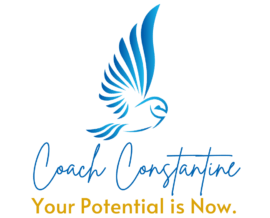Virtual Life Coach: Helping You Achieve Your Goals and Transform Your Life
In today’s fast-paced world, many people feel overwhelmed and struggle to find a work-life balance. In fact, you may be among those who are looking for ways to improve their lives and achieve their goals, but often don’t know where to start. This is where a virtual life coach can be a valuable resource. In this article, I will explore what virtual life coaching is, how it works, and the benefits it can offer compared to in-person coaching.
- What is Virtual or Online Life Coaching?
- How Does Virtual Life Coaching Work?
- Benefits of Virtual Life Coaching
- Who Can Benefit from Virtual Life Coaching?
- Differences Between In-Person and Virtual Life Coaching
- Finding the Right Virtual Life Coach
- Setting Goals with Your Virtual Life Coach
- Tools and Techniques Used in Virutal Life Coaching
- Overcoming Challenges with Your Virtual Life Coach
- How to Make the Most of Your Virtual Life Coaching Sessions
- Measuring Success and Celebrating Achievements
- Integrating Virtual Life Coaching into Your Daily Life
- Conclusion
- FAQs
What is Virtual or Online Life Coaching?
Virtual life coaching is a type of personal coaching that is conducted through virtual means such as video conferencing, phone calls, or messaging apps. This form of coaching provides you with the opportunity to receive personalised guidance and support from a certified life coach from the comfort of your own home. While phone calls or messaging were more common in the past, with recent advances in video calling apps and their popularity (primarily due to the Covid pandemic), they are now the preferred and most convenient option. In addition, as coaches, we frequently notice subtle changes in the client’s mood, facial expressions, and gestures; thus, video calling is more appropriate in this regard.
But how exactly do life coaches assist you? Virtual life coaches can help you overcome personal and professional challenges, set and achieve goals, and improve overall well-being. They offer a safe and non-judgmental space for clients to share their concerns, explore their feelings and thoughts, and work towards creating positive changes in their lives. This is done using a variety of techniques, such as powerful questions, active listening, mindfulness in some cases, worksheets, and so on. It really depends on the training the coach has received, the style of coaching they subscribe to, the needs of the client and a variety of other factors.
How Does Virtual Life Coaching Work?
Virtual life coaching typically involves a series of one-on-one sessions between you, the client, and the coach and usually take place through a video conferencing app, like Zoom, Google Meet or Skype.
During the sessions, the coach will ask you questions to gain a better understanding of your current situation, challenges, and goals. Based on this information, the coach will work with you to create a personalised plan for achieving your goals and overcoming obstacles.
Lastly, virtual life coaching is often conducted on a weekly or bi-weekly basis, with each session lasting between 30-60 minutes or more (again, this also depends on the coach and what you have agreed). The number of sessions required will depend on your goals and needs and is usually decided beforehand..
Benefits of Virtual Life Coaching
Virtual life coaching offers numerous benefits to individuals seeking personal growth and development. Some of these are:
Convenience and Flexibility
Virtual life coaching eliminates the need for in-person sessions, making it a convenient option for those with hectic schedules or who have limited access to in-person coaching for a variety of reasons. It also allows clients to participate in coaching sessions from any location, as long as they have access to a device with an internet connection. The only requirement is that they are in a quiet environment where they can freely express themselves.
Privacy and Comfort
Virtual life coaching provides a safe and confidential space for clients to share their concerns and explore their feelings without the fear of being judged. It also enables clients to attend coaching sessions from the comfort of their own homes, which can be especially beneficial for those who are anxious or uncomfortable in new environments.
Personalization, Customization and Technology
Virtual life coaching offers a personalized and customized approach to coaching, tailored to the client’s specific needs and goals. This personalized approach allows clients to focus on areas of their lives that are most important to them and work towards creating positive changes that are aligned with their values and aspirations. Furthermore, the coach can share any files, worksheets, or helpful material in a centralised online space for quick and easy access, removing the possibility of the client misplacing notes, material, and so on.
Who Can Benefit from Virtual Life Coaching?
Virtual life coaching can benefit individuals from all walks of life who are seeking personal growth and development. Some of the most common issues people seek virtual coaching for are:
- To find a purpose in life
- To explore their potential
- To be more productive
- To deal with stress
- To boost their confidence
- To make a career change or start a new business
- To make positive changes in their lives and achieve their goals
- To adopt new, healthier habits
- To get rid of limiting beliefs
- To be able to forgive people so that they can eliminate anger and resentment from their lives
- To experience emotional freedom
Differences Between In-Person and Virtual Life Coaching
While in-person and virtual life coaching share many similarities, there are also some notable differences to consider. Here are some of the key differences between the two types of coaching:
Physical Presence
One of the most obvious differences between in-person and virtual coaching is the physical presence of the coach. In-person coaching allows for a more personal and direct connection between the coach and client, whereas online coaching relies on virtual communication methods.
Location
In-person coaching typically requires clients to travel to the coach’s office or another physical location. Online coaching, on the other hand, can be conducted from any location with an internet connection, providing greater flexibility and convenience.
Cost
In-person coaching can be more expensive than virtual coaching due to the additional costs associated with renting office space and other overhead expenses. Virtual coaching, on the other hand, eliminates many of these expenses and can often be a more affordable option. However, this is not always the case, as many coaches dislike distinguishing between in-person and virtual clients, so they maintain the same pricing.
Communication
In-person coaching allows for more immediate and direct communication between the coach and client, with the ability to read body language and other nonverbal cues. Virtual coaching, however, relies on virtual communication methods, which may require additional effort to ensure clear communication.
Finding the Right Virtual Life Coach
Finding the right virtual life coach is essential to achieving your goals and transforming your life. Here are some tips for finding a qualified and experienced virtual life coach (also read my article here):
Do Your Research
Before choosing a virtual life coach, do your research to ensure they have the qualifications, certifications, and experience necessary to provide effective coaching. Look for reviews and testimonials from previous clients to gauge their effectiveness. Or visit their “About” page to look at the specific training and qualifications they have.
Consider Compatibility
It’s important to find a virtual life coach who you feel comfortable working with and who aligns with your values and goals. Take the time to have an initial consultation with the coach to ensure that you are a good fit for each other. This is why most coaches offer a free consultation session, to make sure you are a good fit for each other and that they can actually help you.
Look for Specializations
Some virtual life coaches specialise in specific areas, such as career coaching or relationship coaching. Consider your specific needs and look for a coach who has experience and expertise in those areas. For example, I personally specialise in life coaching for women, coaching for young adults (18+), life purpose and find your potential coaching, forgiveness coaching, book writing coach, as well as business coaching for other coaches.

Setting Goals with Your Virtual Life Coach
One of the primary goals of virtual life coaching is to help clients set and achieve their goals. Here are some tips for setting goals with your virtual life coach:
Be Specific
When setting goals, it’s important to be specific about what you want to achieve. This will help you and your coach create a clear plan for achieving your goals and tracking your progress. Even if you go to your coach with a hazy idea of what you want to focus on, he or she will assist you in prioritising your needs.
Make Them Achievable
Goals should be challenging but achievable. Setting goals that are too difficult or unrealistic can lead to frustration and disappointment. Again, this is not something you need to worry about – your coach will guide you and help you make these goals actionable.
Set a Deadline
Setting a deadline for achieving your goals can help keep you motivated and on track. Work with your coach to create a timeline for achieving each goal.
Tools and Techniques Used in Virutal Life Coaching
Virtual life coaches use a variety of tools and techniques to help their clients achieve their goals. Here are some of the most common tools and techniques used in virtual life coaching:
Goal Setting
As mentioned earlier, setting and achieving goals is a primary focus of virtual life coaching. Coaches use various methods to help clients clarify their goals and create a plan for achieving them.
Mindfulness and Meditation
Mindfulness and meditation are often used in virtual life coaching to help clients reduce stress and anxiety, improve focus, and increase self-awareness.
Positive Psychology
Positive psychology is a branch of psychology that focuses on the positive aspects of human experience, such as happiness, gratitude, and well-being. Virtual life coaches often incorporate positive psychology techniques into their coaching to help clients cultivate a more positive mindset and outlook on life. As a certified Positive Psychology coach, this is a method I often use with my clients.
Cognitive Behavioral Therapy (CBT)
CBT is a type of therapy that helps individuals identify negative thought patterns and replace them with more positive and constructive ones. Online life coaches may use CBT techniques to help clients overcome limiting beliefs and achieve their goals. This is another method I use, being certified in CBT.
Accountability and Tracking
Virtual life coaches often provide their clients with tools and resources for tracking their progress towards their goals. This can include goal-setting worksheets, habit trackers, and accountability check-ins.
Overcoming Challenges with Your Virtual Life Coach
Achieving personal growth and development is not always a smooth process. Here are some tips for overcoming challenges with your virtual life coach:
Be Honest and Open
Honesty and openness are essential for effective coaching. Be honest with your coach about your challenges and struggles, and be open to their feedback and guidance.
Stay Committed
Personal growth and development take time and effort. Stay committed to the process, even when it feels challenging or uncomfortable.
Be Patient
Change takes time. Be patient with yourself and the process, and trust that with the help of your coach, you will make progress towards your goals.
Developing a Strong Relationship with Your Virtual Life Coach
The relationship between you and your virtual life coach is an important factor in the effectiveness of the coaching process. Here are some tips for developing a strong relationship with your coach:
Communicate Clearly
Effective communication is key to building a strong relationship with your coach. Be clear and direct in your communication, and let your coach know how they can best support you.
Show Up Prepared
Come to each coaching session prepared with any questions or topics you want to discuss. This will help you get the most out of each session and make progress towards your goals.
Trust the Process
Trust that your coach has your best interests in mind and is committed to helping you achieve your goals. Be open to their guidance and feedback, and trust that they are there to support you every step of the way.
How to Make the Most of Your Virtual Life Coaching Sessions
To get the most out of your virtual life coaching sessions, here are a couple of tips to keep in mind:
First, be present. When in a coaching session, be fully present and engaged. Minimize distractions and give your full attention to the conversation.
Take Action. Coaching is only effective if you take action on the insights and guidance provided. Make a commitment to take action on the insights gained from each session.
Measuring Success and Celebrating Achievements
Measuring success and celebrating achievements is an important part of the coaching process. Here are some tips for measuring success and celebrating achievements:
Set Milestones
Your coach will help you break down your goals into smaller milestones, and track your progress towards each one. Celebrate each milestone achieved along the way.
Reflect on Progress
Take time to reflect on your progress and how far you’ve come. This can help keep you motivated and inspired to continue making positive changes in your life.
Celebrate Achievements
Celebrate your achievements, no matter how small. Celebrating your successes can help boost your confidence and motivation.

Integrating Virtual Life Coaching into Your Daily Life
To make the most of your virtual life coaching experience, here are some tips for integrating coaching into your daily life:
Practice Self-Care
Take care of yourself by getting enough sleep, eating a healthy diet, and engaging in activities that bring you joy and relaxation.
Stay Committed
Commit to making personal growth and development a priority in your life. Make time for coaching sessions and prioritise the goals and habits that you are working towards.
Incorporate Coaching Techniques
Incorporate the tools and techniques you learn from coaching into your daily life. This can include practising mindfulness and meditation, setting daily goals, and tracking your progress towards your larger goals.
Conclusion
Virtual life coaching is a powerful tool for personal growth and development. With the guidance and support of a certified life coach, individuals can overcome challenges, set and achieve goals, and transform their lives for the better. By finding the right coach, setting clear goals, and staying committed to the coaching process, individuals can make positive changes in their lives and achieve their full potential.
FAQs
Is virtual life coaching effective?
Yes, virtual life coaching can be just as effective as in-person coaching. The key is finding a qualified and experienced coach and committing to the coaching process.
How many sessions do I need?
The number of sessions required will depend on your specific needs and goals. Work with your coach to create a plan that works for you.
Can virtual life coaching help with mental health issues?
Coaching is not a substitute for professional mental health treatment. As an ICF-certified life coach I would personally not take on clients that need mental health treatment and I would advise therapy instead. According to the ICF, “ICF defines coaching as partnering with clients in a thought-provoking and creative process that inspires them to maximise their personal and professional potential. Coaching focuses on visioning, success, the present and moving toward the future. Therapy emphasises psychopathology, emotions and the past to understand the present, and it works more with developing skills for managing emotions or past issues than does coaching.”
How much does virtual life coaching cost?
The cost of virtual life coaching can vary depending on the coach and their offerings. It’s important to do your research and find a coach whose services fit within your budget.
What qualifications should I look for in a virtual life coach?
Look for a coach who is certified by a reputable coaching organisation and has experience and expertise in the areas you are looking to work on. Additionally, consider compatibility and communication style when choosing a coach. While coaching is unregulated, there bodies like the International Coaching Federation (ICF) that ensure the highest quality and ethical standards. Having been trained under the ICF code of ethics myself, I subscribe to the ICF values and code of ethics.
Can virtual life coaching be done on a group basis?
Yes, some virtual life coaches offer group coaching sessions. Group coaching can be a more affordable option and can also provide the added benefit of peer support and accountability.
What if I’m not sure what my goals are?
That’s okay! One of the roles of a life coach is to help clients clarify their goals and aspirations. Your coach can work with you to explore your values and interests and create a plan for achieving your goals.
How long does it take to see results from virtual life coaching?
The timeline for seeing results will vary depending on your goals and individual circumstances. However, with commitment and consistent effort, you can start seeing positive changes in your life within a few weeks to a few months of starting coaching.
Do I need to have a specific issue to work on to benefit from virtual life coaching?
No, you don’t need to have a specific issue to work on to benefit from virtual life coaching. Coaching can help individuals from all walks of life improve their overall well-being, achieve their goals, and live a more fulfilling life.
How do I get started with virtual life coaching?
To get started with virtual life coaching, do your research to find a qualified and experienced coach. Reach out to potential coaches to schedule an initial consultation and discuss your goals and needs. From there, you can work with your coach to create a plan for achieving your goals and transforming your life.
How do I know if my coach is qualified?
Look for a coach who is certified by a reputable coaching organization, has experience and expertise in the areas you are looking to work on, and has positive reviews and testimonials from previous clients.
How do I know if I’m making progress during coaching?
Tracking your progress towards your goals and celebrating your achievements can help you see the progress you’re making. Your coach can also provide feedback and guidance on your progress towards your goals.
How do I know if coaching is working for me?
If you’re making progress towards your goals and feeling more fulfilled and satisfied in your life, coaching is likely working for you. It’s important to communicate with your coach regularly to ensure that you’re getting the most out of the coaching process.
Featured photo by Paige Cody on Unsplash


Pingback: Personal Development Coaching for Millennials - Coach Constantine
Pingback: How a Life Purpose Coach Can Help You - Coach Constantine